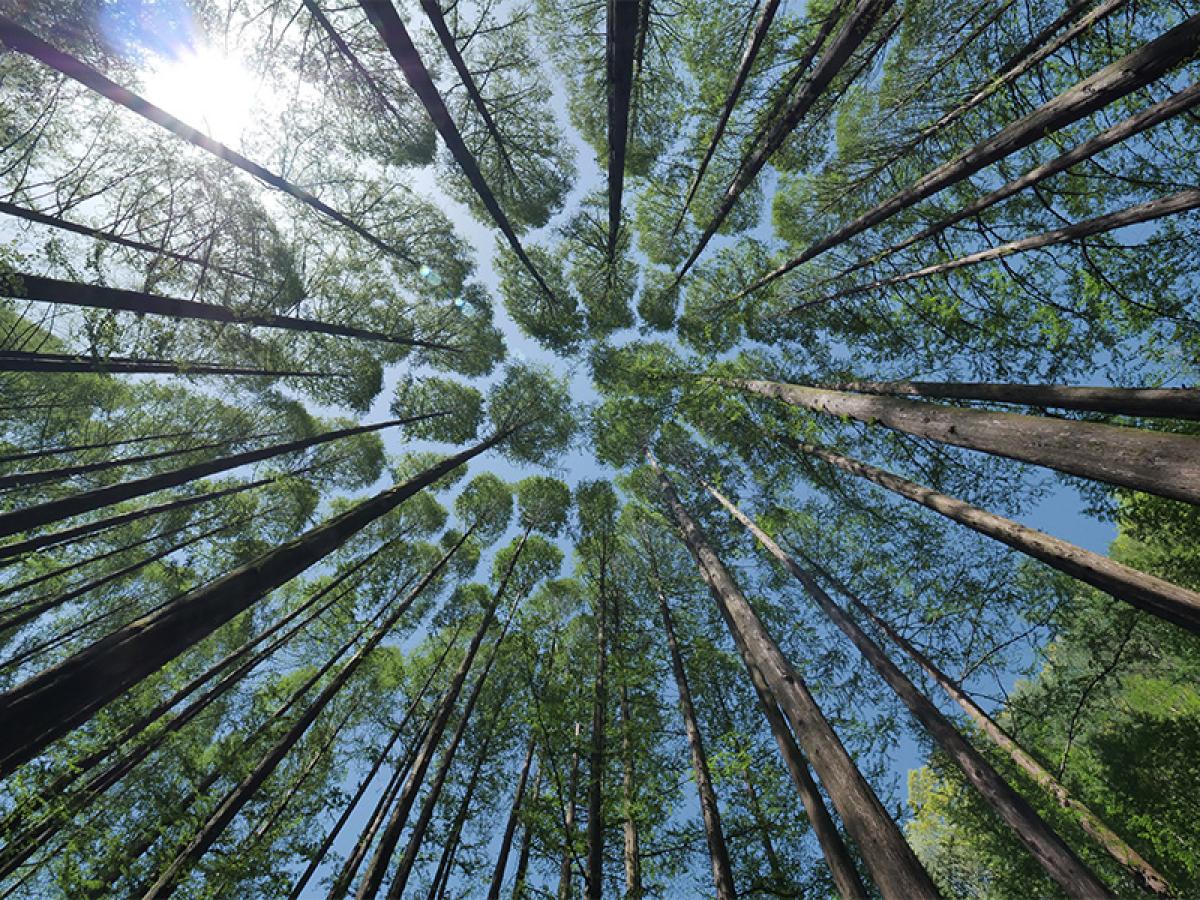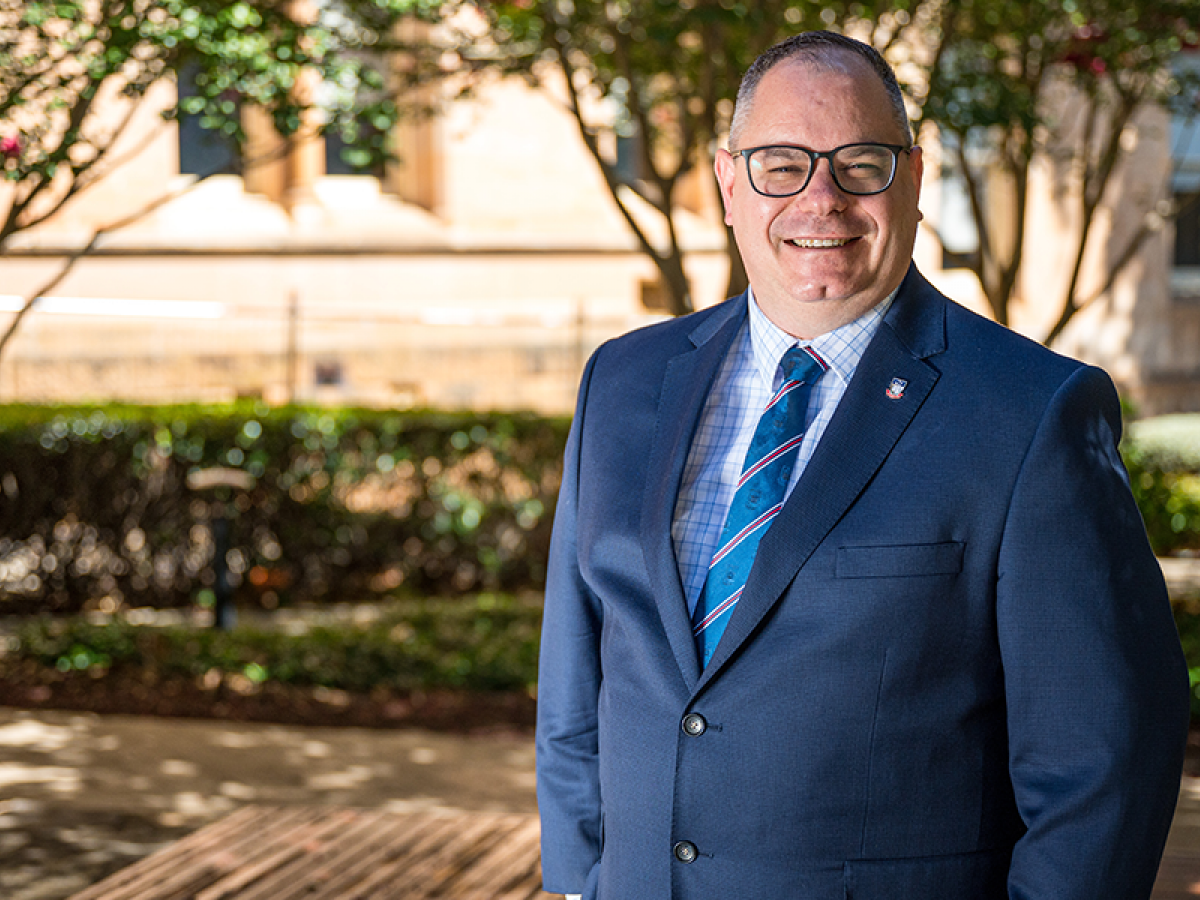The (sustainable) future of the planet

Sustainability – of our planet, and all life on it – is the subject of intense global conversation and research.
At the University of Adelaide a broad range of research is underway. Its goal: accelerating solutions that deliver sustainability, equity and prosperity for the planet and its people.
One of our leaders in this field is Professor Mike Goodsite, the recently appointed Pro- Vice Chancellor (Energy Futures) – a man who wears many hats including Director of the Institute for Sustainability, Energy and Resources – ISER.
In this interview for our special Lumen sustainability issue, Mike gives valuable insight into the current issues we face, and the solutions we are seeking.
The word sustainability is bandied about a lot these days. Can you give us a definition of just what it means?
In 1987, the United Nations Brundtland Commission defined sustainability as “meeting the needs of the present without compromising the ability of future generations to meet their own needs.” Organisations generally adjust this to best match what it means for them. For example, in Here for Good, the University’s sustainability strategy, developed under the leadership of Professor Melissa Nursey-Bray, the definition of sustainability is: to live, work and develop in ways that respect and fairly balance the needs of our ecosystems and intergenerational communities.
Taking a global view, how are we as a species, and the Earth as a planet, faring?
Well, when considering the UN definition, we are, in general, not acting sustainably as a species. Modern humans, in our approximate 200,000 years on this 4.5 billion-year-old Earth, have become the single most influential species on the planet. Our human development has led to emissions and other human activities that contribute to significant global warming and other changes to land, environment, water, organisms and the atmosphere.
We as a species are growing, a few of us in a more economically prosperous manner than others. Indeed, the human species is impacting the geologic record in such a way, that if we were to examine it, since the industrial age, the impact of humans, rather than natural processes, would dominate this record – especially during what is called the ‘great acceleration’ of the last 60 years. It is why scientists refer to the present time as
a geologic epoch where human influence dominates: a new geological era called the Anthropocene – or age of humans, a notion which was proposed first in 2000 by Nobel Prize winning atmospheric scientist Paul J Crutzen and limnologist Eugene F Stoermer.
"We are, in general, not acting sustainably as a species."Professor Mike Goodsite, Pro Vice-Chancellor (Energy Futures)
So, how are we, and the planet Earth faring? I think it is documented that since the dawn of humankind, the planet, where it can be impacted by humans, has never been in such a dire state as it is today. The Stockholm Resilience Centre has documented that many of the so-called planetary boundaries are outside of their limits
The good news is, that just as humans must own the negative impact, we have the capacity to recognise it and develop the tools to understand what is going on.We can mitigate impacts and adapt to changes that we can predict will come. It is a complicated system, but I am very proud to be part of a University where finding the solutions to the greatest challenges of the day is prioritised.
Looking closer to home, how is Australia performing as a nation in terms of the many elements of sustainability?
I think Australia is improving, but there are lots of continued opportunities for improvement across each of the 17 UN Sustainable Development Goals. Australia is starting to look at the abundance of renewable energy, and driving modern energy systems in an ambitious way. Getting to a green energy system that is equitable for all Australians is difficult, but one that present day Australia is doing a great deal to lean into.
And in South Australia? What are some of the big challenges we are facing here?
Ross Garnaut, in his 2020 report: South Australia’s Climate Change Challenge and Opportunity, detailed many of these, including the need to adapt to unprecedented warming and the consequences of this. Since the impact of COVID, we now face additional challenges that are not unique to us, but are perhaps exacerbated by our distance and relative population: the challenge of attracting and maintaining talent in our State. Humans cause anthropogenic impact, and we are also ultimately key to its solution.We must build the knowledge base to turn challenge into opportunity.This requires the talent to do so.
I think we should also point out what we are very good at in our State.We have a globally leading position in variable renewable energy as well as the circular economy. The University of Adelaide is the most hydrogen intensive research university, and the State is building the largest green hydrogen electrolyser in the world.
One of the challenges for any jurisdiction or organisation is the impact of their supply chain, and at the University we are creating knowledge through our own operations and also research to positively address this.

Professor Mike Goodsite, Pro- Vice Chancellor (Energy Futures)
Can you please explain the role of ISER – the Institute for Sustainability, Energy and Resources?
Sustainability is a value and an ethos that the University of Adelaide embeds into our daily actions, our choices on campus, and in our research. Sustainability guides the decisions we make, the way we interact, and what we stand for.
We have three institutes directly addressing sustainability issues: ISER, the Environment Institute and the Waite Research Institute.
ISER is the brand champion of University of Adelaide-wide initiatives and key portal of research capabilities within sustainability, energy and resources. We coordinate the University’s Sustainability Research Strategy and lead large-scale collaborative research efforts across our academic ecosystem.
ISER leads globally transformative research that overcomes complexity, drives change, and creates value for a more sustainable future.We want to accelerate solutions that deliver sustainability, equity and prosperity for the planet and its people, underpinned by breakthrough research.
ISER has 110 affiliate researchers across the University as of January 2023: 28 in the Faculty of Arts, Business, Law and Economics; 12 in the Faculty of Health and Medical Sciences; and 70 in the Faculty of Sciences, Engineering and Technology.
Obviously there are many areas of research need. How is the University deciding which areas to prioritise?
The Sustainability FAME Research Strategy and the University sustainability strategy 2030 – Here for Good, build upon the University’s Strategic Plan, Future Making. The University consults with internal and external stakeholders to align areas of research excellence, relevance and societal impact with our capacity and capability to deliver on these together.
“The planet, where it can be impacted by humans, has never been in such a dire state.” Professor Mike Goodsite, Pro Vice-Chancellor (Energy Futures)
If you had to pick just two really big problems, some big research the University is working on to help the planet, what would you say they are?
Future Energies such as green hydrogen: production from seawater and from photovoltaic cells, storage at near ambient temperature and pressure and scaling its utilisation.
The work we are doing with the primary sectors: sustainable agriculture and land and seascape management together with carbon and biodiversity markets as well as more sustainable mining.
Further information on ISER, and our guide to sustainability experts at the University of Adelaide, click here.
Story by Mark Douglas
